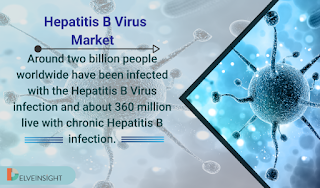Cocaine Intoxication Market: Causes, Symptoms, Diagnosis, Treatment Options, and Market Insights
Cocaine intoxication is a critical medical condition resulting from the use of cocaine, a powerful stimulant drug that affects the central nervous system. Known for its potential to cause severe physiological and psychological effects, cocaine intoxication demands prompt and effective management. This article explores the causes, signs and symptoms, diagnosis, treatment options for cocaine intoxication, and provides an overview of the market related to its treatment.
Causes of Cocaine Intoxication
Cocaine intoxication occurs when an individual consumes cocaine, which can be in the form of powder, crack cocaine, or coca leaf extract. Cocaine is a potent stimulant that increases dopamine levels in the brain, leading to heightened euphoria and increased energy. The primary causes of cocaine intoxication include:
1. Recreational Use: The most common cause of cocaine intoxication is recreational use. Users often seek the stimulating effects of cocaine, which include increased alertness and energy.
2. Overdose: High doses or frequent use of cocaine can lead to intoxication and overdose. The risk is heightened when cocaine is used in combination with other substances, such as alcohol.
3. Non-Medical Use: In some cases, individuals may misuse cocaine for performance enhancement or weight loss, increasing the likelihood of intoxication.
Signs and Symptoms of Cocaine Intoxication
Cocaine intoxication can present with a wide range of symptoms, reflecting its profound impact on the central nervous system and cardiovascular system:
1. Euphoria: Users often experience intense feelings of happiness and energy. This is a hallmark symptom of cocaine intoxication.
2. Increased Heart Rate and Blood Pressure: Cocaine can lead to tachycardia (rapid heart rate) and hypertension (high blood pressure), which may cause chest pain and increase the risk of cardiovascular events.
3. Dilated Pupils: One of the visible signs of cocaine intoxication is dilated pupils.
4. Hyperactivity and Agitation: Users may exhibit restlessness, agitation, and hyperactivity.
5. Paranoia and Hallucinations: Cocaine intoxication can cause paranoia, hallucinations, and delusions.
6. Nausea and Vomiting: Gastrointestinal symptoms such as nausea and vomiting are common.
7. Seizures: High doses or severe intoxication can lead to seizures and convulsions.
8. Chest Pain and Shortness of Breath: Cocaine use can precipitate myocardial infarction (heart attack) and respiratory issues.
Diagnosis of Cocaine Intoxication
Diagnosing cocaine intoxication involves a combination of clinical assessment and laboratory tests:
1. Clinical Evaluation: Healthcare providers conduct a thorough assessment, including taking a detailed history of drug use, observing symptoms, and conducting a physical examination.
2. Toxicology Screening: Urine and blood tests can confirm the presence of cocaine and its metabolites. These tests help in diagnosing cocaine use and assessing the extent of intoxication.
3. Electrocardiogram (ECG): An ECG may be performed to assess the heart’s electrical activity and detect any abnormalities caused by cocaine use.
4. Imaging Studies: In cases of severe intoxication or suspected complications, imaging studies such as chest X-rays or CT scans may be used to evaluate cardiovascular and pulmonary effects.
Treatment Options for Cocaine Intoxication
Treatment for cocaine intoxication focuses on stabilizing the patient, managing symptoms, and preventing complications:
1. Supportive Care: Initial treatment includes providing a calm environment, monitoring vital signs, and ensuring adequate hydration.
2. Medications: Various medications may be used to address specific symptoms:
- Benzodiazepines: These are commonly administered to manage agitation, seizures, and anxiety.
- Antihypertensives: Medications to control elevated blood pressure and reduce the risk of cardiovascular complications.
- Antiarrhythmics: For managing abnormal heart rhythms.
3. Cardiovascular Support: In cases of severe cardiovascular effects, treatments may include medications to stabilize heart rate and blood pressure, and interventions to manage myocardial infarction.
4. Psychiatric Support: Mental health support may be necessary to address acute psychiatric symptoms, such as paranoia and hallucinations.
5. Detoxification and Rehabilitation: Long-term management may involve detoxification programs and rehabilitation to address substance use disorders and prevent recurrence.
Cocaine Intoxication Epidemiology and Market Facts
The prevalence and impact of cocaine intoxication are significant public health concerns:
- Prevalence: Cocaine use and intoxication remain substantial issues globally. According to recent data, approximately 0.5% to 1% of the adult population in developed countries report using cocaine annually.
- Market Size: The market for treatments related to cocaine intoxication is part of the broader addiction treatment market, which is growing due to increased awareness and demand for effective interventions. The market size for substances abuse treatment was valued at several billion dollars in recent years and continues to expand.
- Economic Impact: Cocaine use and its consequences have a significant economic impact due to healthcare costs, loss of productivity, and criminal justice expenditures.
Companies Working in the Cocaine Intoxication Market
Several companies are active in developing treatments and interventions for cocaine intoxication and related conditions:
1. Indivior PLC: Known for its work in addiction treatment, Indivior develops medications and therapies for substance use disorders, including cocaine addiction.
2. Alkermes plc: Alkermes is involved in the development of medications for addiction treatment, including those targeting stimulant use disorders.
3. Opiant Pharmaceuticals: Specializes in developing treatments for addiction and overdose, with a focus on opioid and stimulant-related conditions.
4. Mylan N.V.: Mylan provides various medications, including those used in addiction treatment and management of acute symptoms associated with intoxication.
5. Psychedelic Sciences: Emerging companies in the psychedelic research space are exploring novel treatments for addiction, including cocaine use disorder.
Cocaine intoxication is a serious medical condition with significant implications for physical and mental health. Understanding its causes, symptoms, and treatment options is crucial for effective management and prevention. The market for cocaine-related treatments is growing, driven by increased demand for effective interventions and ongoing research. Companies across the pharmaceutical and therapeutic sectors are actively contributing to advancements in the treatment of cocaine intoxication and substance use disorders.
Download sample report @ https://www.delveinsight.com/sample-request/cocaine-intoxication-market

Comments
Post a Comment